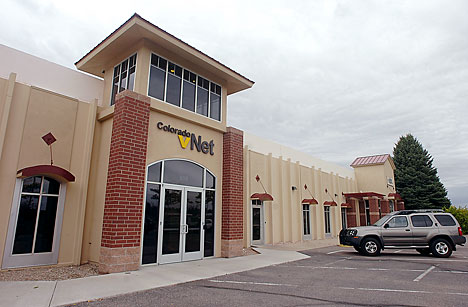
<October 7, 2009>Newmarket, RI-based Russound announced this past Monday that it had signed a letter of intent to purchase recently shuttered Colorado vNet in a deal for which terms were not disclosed and that is expected to close by the end of October. The deal was a surprise to many in the industry as Colorado vNet recently announced the collapse of discussions with multiple potential suitors causing the company to cease operations, lay off staff, and close their doors in late September.
 Russound’s CEO Charlie Poritt said in a prepared statement, “Colorado vNet brings a number of key assets to Russound: a talented team of personnel, industry-recognized automation and control technology, and a strong customer base. The addition of Colorado vNet to the Russound family will advance both brand’s ability to deliver whole house entertainment & control solutions while expanding our integration partnerships with a variety of lighting, HVAC, security, and automation brands.”
Russound’s CEO Charlie Poritt said in a prepared statement, “Colorado vNet brings a number of key assets to Russound: a talented team of personnel, industry-recognized automation and control technology, and a strong customer base. The addition of Colorado vNet to the Russound family will advance both brand’s ability to deliver whole house entertainment & control solutions while expanding our integration partnerships with a variety of lighting, HVAC, security, and automation brands.”
Industry insiders suggested that the acquisition appears, on the face of it, to make sense from a product perspective. However, some knowledgeable observers in the industry have told the ALERT that there are questions about the deal from a business perspective.
A tricky business…
Acquisitions are a tricky business. Research over a number of decades suggests that anywhere from 60% to 80% of all acquisitions fail. One study quoted by Inc. Magazine showed 70% of acquisitions failed outright, and 90% of acquisitions actually resulted in a loss of market share.
A recent article from the Wharton School of Business at the University of Pennsylvania talks about the challenges not only in an historical sense, but in terms of the current difficult economic environment. “Valuations tend to be a lot trickier because there is so much economic uncertainty and volatility,” says Robert Holthausen, a Wharton professor of accounting and finance. Holthausen is also the academic director of the “Mergers and Acquisitions” program at Wharton.
Two parts of a challenge…
But finding and valuing an attractive deal is only part of the challenge. According to Holthausen, actually realizing gains from the acquisition is equally challenging.
“In the turmoil rocking today’s economies across the globe, businesses and individuals need to be even more diligent in making decisions, whether they are managing businesses or portfolios,” Holthausen said.
A high failure rate…
With such a high acquisition failure rate, Russound has their work cut out for them. In an effort to get reaction to the Russound announcement, the ALERT contacted several industry insiders each of whom has special knowledge about the companies, the market, the products, or acquisitions. The ALERT also attempted to contact Russound for comment, but calls were not returned by press time.
Each of these insiders would only agree to speak with the ALERT if their identities were not disclosed due to existing, past, or potential future dealings with one or both of the companies.
A matter of degrees…
Although each of these individuals were interviewed separately, the remarkable degree of their agreement on key issues suggest that Russound will be navigating a tricky minefield as they attempt to successfully integrate Colorado vNet into their unique culture.
Most of the observers agreed that there may in fact be a good strategic fit between the two product lines. “The product lines seem to be quite complimentary,” said one of the group. “It could be a good fit.”
Another observer told the ALERT that the acquisition puts Russound into “next generation products with both the control and the I.P. technologies” that Russound needs to stay competitive. Adds another, “Looks like one of the best opportunities to come down the pike for some time” for Russound.
A hard market…
But all of the observers mentioned the difficulty of cracking the control product category. One insider told the ALERT that the control segment is dominated by a handful of powerful companies. These companies are not likely to step aside to pave the way for a new competitor. Said one insider, “Control is a hard market to break into.”
Still, it is reasonable to assume that an acquisition of a successful control manufacturer could be a reasonable way to enter the market, rather than launching an all-new product line from the ground up. But was Colorado vNet successful? Some of the observers questioned whether Colorado vNet has the muscle to make a significant dent in the control segment.
Cost to revitalize…
But one insider told the ALERT that Colorado vNet’s technology was well received by dealers and suggested that the company’s failure was more the result of management issues rather than product or technology failures. “The technology is sound, it just takes years to get it established,” said the insider.
But others were more troubled, “I’m not so much concerned with what it cost them to buy [Colorado vNet], but rather what it’s going to cost to revitalize it.”
The Wharton article suggests that acquisitions can be an acid test of a company’s management and notes that there are four key areas where managers can easily err:
Overbidding: For a variety of reasons, it is quite common for the management of acquirers to overbid in the process. Perhaps one of the most common reasons is that the managers become enamored with “doing the deal” and lose sight of their original target numbers. Most of the sources approached by the ALERT for this story suggested that Russound most likely purchased Colorado vNet at an attractive price and therefore is not likely a victim of overbidding.
Due diligence failures: The intense analysis of the deal during the due diligence process is another area where managers can drop the ball. Common misjudgments include ignoring integration challenges, overestimating synergies, or missing key issues. Target companies, notes Holthausen “dress up” their businesses for the sale. It is up to the acquirer’s management to see through this and uncover the “real” value.
Poor integration and culture clashes: Management must have a clear and strong acquisition strategy and integration plan. Integration problems, in particular, have destroyed many an acquisition. Says Holthausen “…at the end of the day if you can’t get these two organizations to cooperate with one another, you are not going to have a viable business.” Several of the insiders questioned by the ALERT suggest that this will be Russound’s greatest challenge – the successful integration of Colorado vNet into the company.
Poorly run acquisition process: Wharton suggests that companies must demand accountability from their managers to ensure a smooth acquisition process. Several of the industry insiders suggested that Russound has had a spotty track record with acquisitions and pointed specifically to the Intellinet Controls acquisition by Russound some time ago as an example of a less-than-successful acquisition by Russound management.
Foggy synergies…
What does Russound have to watch out for? Well, for one thing, the industry observers suggest that the synergy needed to make the acquisition a success…is not clear. Said one observer, “I would feel more comfortable with the deal if there were more immediate synergies.”
Beyond the issue of product synergy, many of the executives interviewed for this article suggested that other potential synergies were foggy. Russound, for example, distributes their products primarily through the wholesale distribution channel. Colorado vNet, on the other hand, is said to sell their dealers on a direct basis. This fact suggests that how these companies “go to market” are not complementary…and that integration will be extremely difficult.
An expensive proposition…
As Inc. Magazine warns, “Will customers really buy the products or services you assume are complementary to your own? If you misjudge their needs, you could end up with two completely un-integrated customer bases and product lines – an expensive and unwieldy proposition.”
One executive told the ALERT, “I am very doubtful [Russound] will realize any true value from this acquisition.” However others were more optimistic. “Russound has brought in some seasoned managers,” said one source. “The company is fundamentally strong.”





Leave a Reply